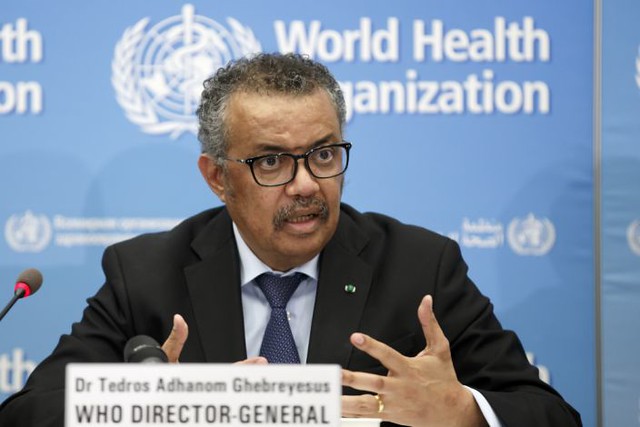Qatar led a successful vaccination drive since the jabs became available for the public.
The end for the Covid-19 “is in sight” as the number of pandemic-related fatalities reaches its lowest since March 2020, Dr. Tedros Ghebreyesus, Director-General of the World Health Organisation (WHO) said on Wednesday.
“We have never been in a better position to end the pandemic. We are not there yet, but the end is in sight. A marathon runner does not stop when the finish line comes into view. She runs harder, with all the energy she has left,” Dr. Ghebreyesus told the media.
The senior global health official added that while the world is recovering, “now is the worst time to stop running”, stressing the need to continue preventative measures.
“If we don’t take this opportunity now, we run the risk of more variants, more deaths, more disruption and more uncertainty. So let’s seize this opportunity,” said the WHO chief.
The Covid-19 outbreak in 2020 took the world by surprise, disrupting daily life as countries went into complete lockdowns to combat the spread of the newly-discovered virus at the time.
Qatar was praised globally for its rapid measures in preventing the spread of the virus, succeeding in having one of the lowest number of Covid fatalities.
The pandemic had numerous consequences, with the global economy taking a significant hit by the disruptions which reverberated worldwide.
Policy briefs
During his latest remarks, Dr. Ghebreyesus released six policy briefs in which he urged the international community to follow in order to bring the pandemic to an end.
“We urge all countries to invest in vaccinating 100% of the most at-risk groups, including health workers and older people, as the highest priority on the road to 70% vaccine coverage,” said Dr. Ghebreyesus.
He also called on all countries to continue conducting Covid-19 tests, “integrate surveillance and testing services with those for other respiratory diseases, including influenza”.
The WHO official added that a system shall be implemented to provide patients with urgent care and including care for Covid-19 into primary health care systems.
“Plan for surges of cases, and make sure you have the supplies, equipment and health workers you will need. Maintain infection prevention and control precautions to protect health workers and non-Covid patients in health facilities,” said Dr. Ghebreyesus as he listed the measures.
Another part of the list was rooted in the need for proper communication between governments and their communities regarding all changes concerning Covid-19 policies, including their reasoning.
“And train health workers to identify and address misinformation, and develop high-quality health information in digital formats,” he said.
Global vaccination drive
After almost a year without vaccines, hope was raised on ending the pandemic as shots became available between late 2020 and early 2021.
Qatar led a successful vaccination drive, ensuring the protection of priority groups of the elderly and health workers before gradually expanding the eligibility for the jabs.
To date, Qatar has administered a total of 7,445,164 vaccine doses, per figures published by the Ministry of Public Health (MoPH). The health ministry’s official website says that a further 1,869,050 of its population received booster shots.
The Gulf state has also extended a helping hand to communities in need of vaccines.
Last year, Qatar partnered with the Global Alliance for Vaccines and Immunisation (GAVI) by providing the entity with $10 million to support its efforts in purchasing 1.3 billion doses. Through the partnership, the country aims to provide 92 low-income countries with vaccines.
In April last year, Qatar announced a major $100 million initiative to vaccinate more than three million refugees and displaced people in 20 countries around the world.
Meanwhile, Dr. Ghebreyesus said that WHO delivered more than 1.7 billion doses of vaccine around the world.
“Countries and health workers still need support to prepare for, to recognise, to test and to treat cases, and to prevent infections,” said WHO official.







